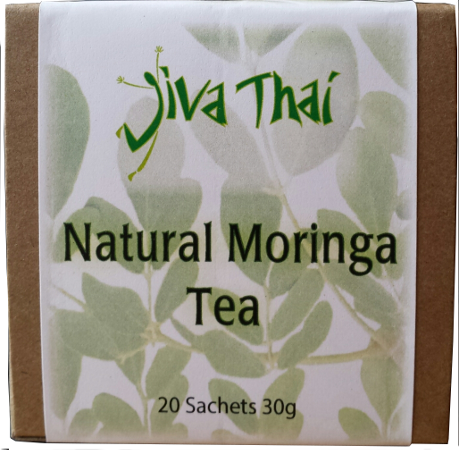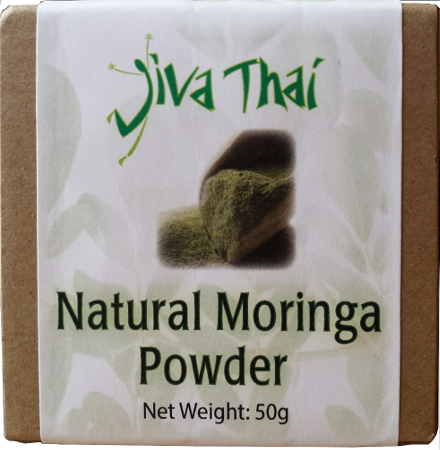 |
 |
Moringa oleifera or drumstick tree has long been a highly valued plant. Different parts of this tree have an impressive range of medicinal properties with high nutritional value. The plant provides a rich and rare combination of zeatin, quercetin, β-sitosterol, caffeoylquinic acid and kaempferol. The leaves are the most nutritious part of the plant. It is a significant source of vitamin B6, vitamin C, provitamin A as beta-carotene, magnesium and protein, among other nutrients reported by the USDA, shown in the table below.
|
Nutrients |
Common food |
Moringa Leafs |
|
|---|---|---|---|
|
Vitamin A |
Carrot |
1.8 mg |
6.8 mg |
|
Calcium |
Milk |
120 mg |
440 mg |
|
Potassium |
Banana |
88 mg |
259 mg |
|
Protein |
Yogurt |
3.1 g |
6.7 g |
|
Vitamin C |
Orange |
30 mg |
220 mg |
In addition to its high nutritional value, it acts as cardiac and circulatory stimulants, possess anti-tumor, anti-cancer, anti-inflammatory, anti-ulcer, diuretic, anti-hypertensive, blood sugar lowering, cholesteral lowering, antioxidant, hepatoprotective, antibacterial and antifungal activities. Recent studies have confirmed these properties.
Our moringa tea and moringa powder is grown naturally in a tea orchard without the use of chemical fertilizers and pesticides. We also use non-chlorine bleach tea bags for our moringa tea product.
Directions
Moringa Tea: Use one cup of boiling water per one tea bag. Let steep for 5 minutes. Enjoy!
Moringa powder: Use 1/4 - 1/2 teaspoon in hot water and drink as tea. Put one teaspoon in your smoothie. Mix powder in soup, porridge, or batter of bake goods for extra nutrition.


